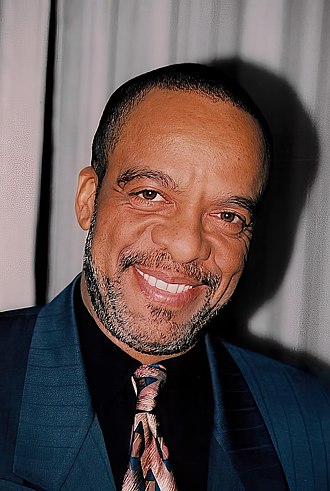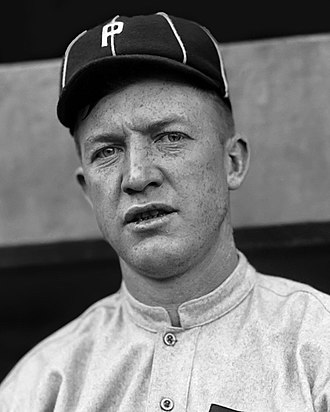Discover Your Roots
SIGN UPDiscover Your Roots
SIGN UPGrover is a male given name of English origin, meaning "From The Grove." It first gained popularity in the United States during the late 19th century, coinciding with the presidency of Grover Cleveland, after whom many babies were named. Despite initially being a surname, Grover became a common given name due to President Cleveland being addressed by his middle name. The name's popularity peaked during Cleveland's presidency but declined in the 1970s. Noteworthy individuals bearing the name include President Grover Cleveland, athletes such as Grover Cleveland Alexander, and fictional characters like Grover from Sesame Street. The name Grover continues to be associated with strength, leadership, and a connection to nature.

Stephen Grover Cleveland (1837–1908) was the 22nd and 24th President of the United States, serving nonconsecutive terms from 1885 to 1889 and 1893 to 1897. As the first Democrat elected to the presidency after the Civil War, Cleveland made a lasting impact on American politics. Born in Caldwell, New Jersey, he rose to prominence as the mayor of Buffalo and later as the governor of New York. Cleveland's leadership was characterized by his commitment to political reform, fiscal conservatism, and honesty. During his presidency, he signed significant legislation, including the Interstate Commerce Act of 1887, which regulated the railroad industry, and the Dawes Act, which led to the subdivision of Native American communal landholdings. While his first term was marked by notable achievements, his second term faced challenges, including the Panic of 1893, which led to a severe national depression. Despite his efforts to address economic crises, Cleveland's policies and handling of the situation contributed to his declining popularity. After leaving office, he remained active in public life, serving as a trustee of Princeton University and joining the American Anti-Imperialist League in protest of the 1898 Spanish-American War. Although Cleveland's legacy is complex, his impact on American politics and his contributions to political and economic reforms during his tenure as President are widely recognized.

Grover Washington Jr. (December 12, 1943 – December 17, 1999) was an influential American jazz-funk and soul-jazz saxophonist, renowned for his Grammy Award-winning musical contributions. Hailing from Buffalo, New York, Washington's early exposure to jazz through his father's record collection and his own musical family set the stage for his stellar career. His versatility and talent on the saxophone, including soprano, alto, tenor, and baritone, quickly gained recognition in the jazz and soul music scenes.Washington's breakthrough came with his debut solo album, "Inner City Blues," marking the start of a successful career that produced several memorable hits, such as "Mister Magic," "Winelight," and "Just the Two of Us," a collaboration with soul artist Bill Withers. His album "Winelight" not only went platinum but also earned him a Grammy Award in 1982. Furthermore, Washington's influence extended beyond his own music, as he is credited with nurturing the careers of emerging talents in the late 1980s and early 1990s, including Kenny G and Kirk Whalum.Tragically, Washington passed away on December 17, 1999, leaving behind a remarkable legacy in the world of jazz and soul music. His contributions continue to inspire and influence musicians and fans alike, solidifying his position as a legendary figure in the smooth jazz genre.

Grover Cleveland Alexander, also known as "Old Pete" and "Alexander the Great," was a renowned American Major League Baseball pitcher who played for the Philadelphia Phillies, Chicago Cubs, and St. Louis Cardinals from 1911 to 1930. Born in Elba, Nebraska in 1887, he overcame early challenges, including being struck by a thrown ball while baserunning. Despite this setback, Alexander became a star pitcher, setting numerous records and achievements throughout his career. Notably, he led the league in various categories such as ERA, wins, innings pitched, strikeouts, complete games, and shutouts. Alexander's pitching prowess earned him the National League pitching Triple Crown in 1915, 1916, and 1920. However, he also battled personal struggles, including alcoholism and health issues stemming from his service in World War I. Despite these challenges, he continued to excel in his career, winning another pitching triple crown in 1920 with the Chicago Cubs. His contributions to the sport were recognized when he was elected into the Baseball Hall of Fame in 1938, solidifying his legacy as one of baseball's all-time greats.

The Grover surname is prevalent among people in India and individuals of English descent. In India, Grovers are a prominent clan among the Punjabi Khatris, with the name being an anglicized version of "Guruwara." Historically, the Grovers were concentrated in cities such as Jhang, Multan, Mianwali, Lahore, Amritsar, and Sialkot. Notable individuals bearing the surname Grover include a diverse array of accomplished figures from various fields.In India, personalities like Arjun Dass Grover, a renowned ophthalmologist, and Gulshan Grover, a prominent actor, have brought recognition to the name. Additionally, figures such as Anand Grover, a lawyer activist, and Sahaj Grover, a chess prodigy, have also made significant contributions to their respective fields.Outside India, the Grover name has been associated with figures like A. D. Grover, an American banjoist, and La Fayette Grover, a U.S. politician. Furthermore, individuals like William Grover-Williams, a French/English car racer, and Ricky Grover, a British actor and comedian, have also added to the diverse legacy of the Grover name.The surname Grover has thus left an indelible mark on various spheres, encompassing fields as diverse as medicine, entertainment, sports, and politics, both within and outside India.

Grover Aloysius Whalen (1886–1962) was a prominent figure in New York City during the 1930s and 1940s, known for his roles as a politician, businessman, and public relations expert. He was born on July 2, 1886, in New York City, to an Irish immigrant father and a French-Canadian mother. Whalen's early career included working for John Wanamaker's department store and running his father's ash and garbage disposal business. His political involvement began with supporting the election of John F. Hylan as Mayor of New York, leading to his appointment as Commissioner of Plants and Structures. He later served as New York City Police Commissioner under Mayor Jimmy Walker. Whalen gained notoriety for his handling of Prohibition laws, and his tenure ended amidst criticism for the police's handling of a demonstration. Later in his career, he was appointed as Chairman of the Mayor's Committee on Receptions to Distinguished Guests by Fiorello La Guardia. Whalen gained recognition as the official greeter and organizer of public events and celebrations in New York, earning him the title "Mr. New York." He was also involved in the planning and execution of the 1939 New York World's Fair and received numerous accolades for his contributions to the city. Whalen's autobiography, "Mr. New York," provides a firsthand account of his experiences and contributions to the city. His legacy as a key
All images displayed on this page are sourced from Wikipedia or Wikimedia Commons.We use these images under their respective Creative Commons or public domain licenses. Wherever applicable, author attributions and license information are provided. If you believe an image is used incorrectly or outside its license terms, please contact us so that we can review and correct the issue.